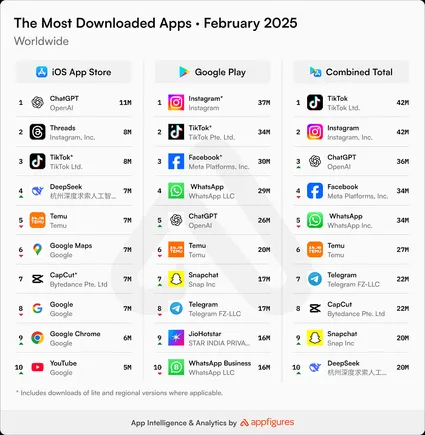Here are Friday’s biggest calls on Wall Street: UBS double-downgrades Rivian The firm said to sell the electric vehicle maker’s stock, joining a growing group of concerned analysts following the company’s earnings report. “We had been optimistic on RIVN’ s product and brand ultimately winning out. But a rapidly changing EV backdrop causes us to reassess our demand view and makes RIVN’s current strategy quite onerous on the ramp to profitability and cash flow.” See the full story here. Barclays upgrades DraftKings The investment bank raised its rating on the sports betting stock to overweight from equal weight and raised the price target, noting a larger market than previously anticipated. “We’re less concerned than we were 3-6 months ago over increased competition, and see the ~10% pullback off the highs post its (strong) 4Q report as an attractive near-term entry point.” Read the full CNBC Pro report here. Citi upgrades Fox The bank upped its rating to buy from neutral, noting a recent deal for a sports streaming service with other media giants. “Our analysis shows that the JV will be a positive for Fox … as such, we have modestly raised our revenue and EBITDA estimates in FY25 and FY26. Beyond the benefit to estimates, we suspect the JV could be a positive for the multiple, as it places Fox on a firmer footing as it reduces exposure to the secular pressures affecting the Pay TV ecosystem.” UBS upgrades Ross Stores The firm said Ross Stores was now a neutral-rated stock rather than a sell and expects a “solid” quarterly report. “We now see less risk to ROST’s long-term earnings outlook for 3 reasons: 1) Macro headwinds have faded; 2) We have more conviction in our view ROST and other Off-Price retailers will continue to take market share over Department Stores; and 3) ROST has more margin expansion potential than previously thought.” Raymond James upgrades Carvana The investment bank moved Carvana to market perform from underperform following the fourth-quarter earnings results. “A week ago we downgraded CVNA with a view that the Street estimate for adj. EBITDA appeared reasonable and the company would likely withhold ‘Step 3′ of their turnaround plan for now as they cautiously navigate the sector’s pressures (affordability and availability concerns). While 4Q23 was in-line with our expectations, we are raising our 2024 adj. EBITDA forecast to reflect better-than-expected GPU trends QTD in 1Q24 (favorable wholesale/retail spreads continuing along with structural improvements in the business).” Guggenheim initiates Pfizer The firm opened coverage of the biopharmaceutical stock with a buy rating and $36 price target. ” Pfizer shares have significantly underperformed over the past 2+ years since the COVID-19 pandemic increased investors’ hopes regarding the potential for Pfizer’s COVID-19 vaccine, Comirnaty, and oral anti-viral treatment Paxlovid (PFE shares are down > 50% since mid-December 2021 vs. S & P500 up ~8% and DRG up ~25%). We believe expectations for Pfizer’s COVID assets have now appropriately come down and, while several of their other largest revenue generators are also facing challenges, we see an opportunity for near-term estimates to increase if management is able to successfully commercialize large potential opportunities, such as Padcev in 1L bladder cancer and Abrysvo for prophylactic vaccination against RSV. In addition, given how low we believe investor expectations are for Pfizer at the moment, clinical success from some of Pfizer’s interesting pipeline assets … could improve investor sentiment and increase longer-term estimates, with the current ~6% dividend yield providing support to the stock while management executes on the story.” Raymond James upgrades ATN International The firm upgraded the communication services stock to strong buy from outperform following earnings. “Based on these results, the selloff was quite surprising to us, and we think might be more related to fund flows than fundamentals especially given ATNI’s relatively low float. Big picture, ATNI has invested significantly in a “Glass-and-Steel” expansion strategy with fiber broadband and towers (including backhaul), and is pivoting away from the legacy U.S. wireless wholesale roaming business. This drove high capex in 2022 ($160M) and 2023 ($163M), which is dropping in 2024 (RJE $120M) and should drop again in 2025 (RJE $104M), driving an inflection point in free cash flow turning positive again, which ATNI is using to increase returns to shareholders.” Morgan Stanley downgrades Brighthouse Financial The major bank switched the annuity carrier’s rating to underweight from equal weight. “Among the annuities carriers, we believe Brighthouse is less favorably positioned than Equitable under the current macro environment. Although Brighthouse is working through its current challenges, we see a longer path to capital returns and slower earnings generation relative to Equitable.” JPMorgan downgrades Penumbra The closely followed investment bank lowered its rating on shares of the health stock to neutral from overweight on the back of earnings. “Given the company’s recent track record with a miss in 4Q and in-line 3Q, we think Penumbra will be in the penalty box until it can prove to investors that it is able to guide to levels it can consistently beat and raise off of. While the business is still performing well on a growth basis, where we struggle is valuation; with the stock trading at ~7x NTM EV/sales, we see better opportunities in our coverage universe.” Rosenblatt initiates Adeia The firm began coverage with a buy rating and $15 price target. “We view Adeia’s profitability profile among the best in public markets with solid growth potential in both media and semiconductor IP. … We view the ADEA shares as undervalued trading at 8x NTM earnings while we see ~5% 5-year CAGR with operating margin above 60%. We believe ADEA shares have been overlooked by investors since its separation from Xperi in October, 2022. We recommend investors own the ADEA shares as this 30-year-old start-up as video migrates to new platforms and demand for higher performance semiconductors accelerates.” JPMorgan upgrades Fluence Energy The bank raised its rating to overweight from neutral after a short report catalyzed a drop in share prices. “We have been sidelined on FLNC primarily owing to valuation, despite encouraging trends of a building backlog and rebounding gross margins. We believe the pullback induced by the short report presents a buying opportunity.” Roth MKM initiates CPI Card Group Roth MKM started coverage of the financial technology stock with a buy rating and $40 price target. “Traction moving customers to higher-value contactless EMV cards accelerated during the COVID-19 pandemic. Revenue growth peaked at 36% Y/Y in 4Q22 on customer overbuying to manage supply chain risks. We expect the period of issuer inventory digestion to clear by 2H24, lifting the outlook. CPI’s long-term organic growth rate should exceed 10% market growth on mix and share gains leveraging a 50% capacity expansion.” JPMorgan downgrades Nio JPMorgan downgraded the electric vehicle maker to underweight from neutral. “All in all, our downgrade – admittedly a late one – is to reflect our cautious view on the company’s sales and earnings momentum in a very competitive market. We also believe consensus forecasts are subject to potential downside risk.” Seaport upgrades Block The firm raised its rating on the financial technology company to buy from neutral following its latest earnings release. ” SQ’s progress over the past several months in terms of streamlining itself organizationally, sharpening its focus within its two key businesses Square and Cash App, and becoming hyper-focused on driving profitable growth has been impressive – and we think there’s more to go. The company’s financial results this quarter demonstrated excellence in execution. … Bottom line, we’re taking our forecasts for adj. EBITDA up for ’24/’25, and we now see SQ as being well on its way to executing against its Rule of 40 framework by ’26. For the shares, risk/reward seems reasonable to us here, and we see room for further upside.” — CNBC’s Fred Imbert contributed to this report






































































